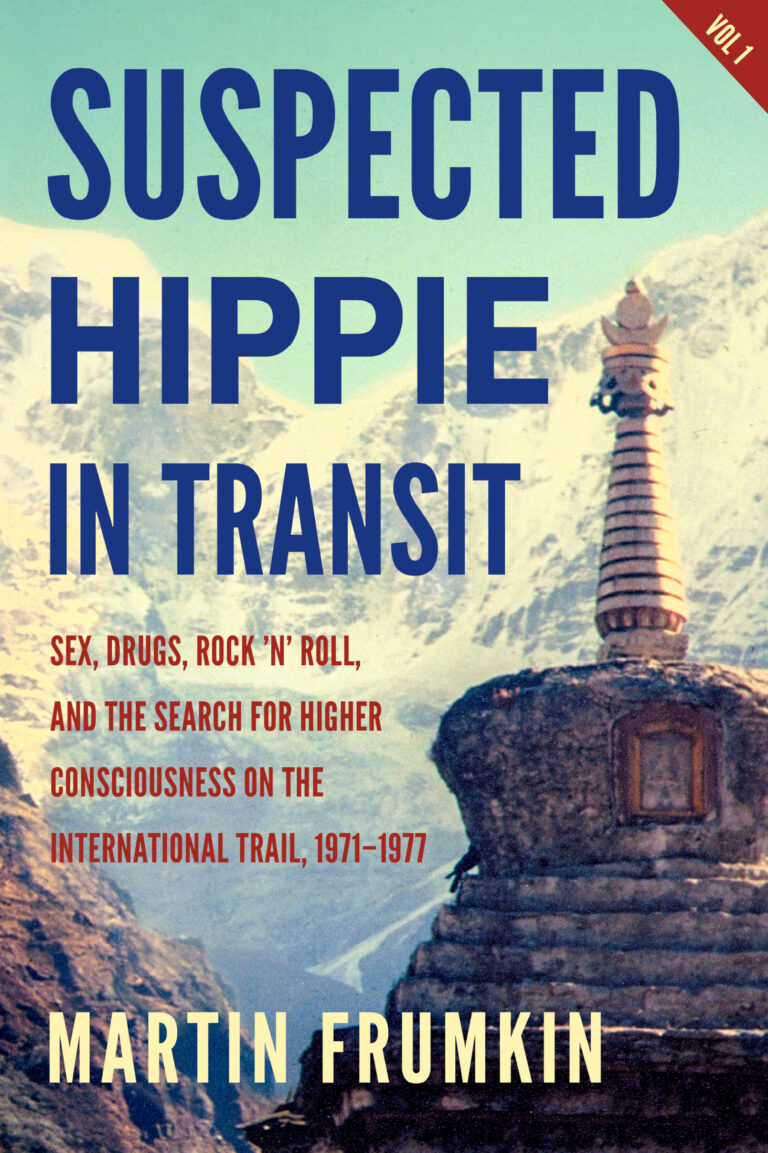Any expectation that SUSPECTED HIPPIE IN TRANSIT, Martin Frumkin’s memoir of his travels through South Asia in the 1970s, will be a winsome, romantic travelogue should be dispelled by the book’s title, which refers to the stamp that the notoriously anti-hippie Malaysian government once applied to the passports of suspicious-looking backpackers. (It’s also a hilariously unflattering acronym.) Adapted from journal entries and letters the self-described “perennial peripatetic” wrote while trekking through India, Afghanistan, Nepal, Sri Lanka, and Burma between 1972 and 1976, Frumkin’s memoir is a candid—often uncomfortably so—chronicle of a physical and metaphysical journey that explores not only the sights, sounds, and smells of the places he visits, but interrogates his values and philosophical notions as a hippie and Westerner in relation to those of the people and cultures he encounters.
Opening with a series of quotations, drawn from such far-ranging sources as the Bhagavad Gita, Lao Tzu, Muhammad Ali, and The Animals, that establishes the book’s philosophical mission statement, Frumkin brings the reader to the banks of the Ganges river, where a corpse is being burned on a funeral pyre. This somber moment, rendered in vivid detail, segues into a discussion of the Indian caste system, Hinduism, and Western attitudes towards India as an “uncivilized and crude” nation. “Although considered impoverished when measured by Western standards,” Frumkin writes, “India is not undeveloped. Lack of meaningful and widespread birth control and efficiency, and unequal utilization and distribution of resources, technology and education are its problems.” While much of SUSPECTED HIPPIE IN TRANSIT is concerned with such weighty topics as Western psychotherapy versus Eastern philosophy and how Eastern philosophy is marketed to neurotic Westerners as a panacea for a spiritually bankrupt society, Frumkin’s resolutely unsanitized accounts leave intact the grubby, mundane details of life on the road, including harrowing descriptions of dysenteric episodes and run-ins with drug-addicted fellow travelers. (“I began to lose my patience and tolerance,” Frumkin writes in Kabul, Afghanistan, “after hours of exposure to the incessant noise, filth, vomit, snuff, saliva, and green mucus.”)
The warts-and-all tour Martin Frumkin offers in SUSPECTED HIPPIE IN TRANSIT is expansive in scope and packed with fascinating stories. It is also a profoundly spiritual, thought-provoking, and funny work conveyed by a natural storyteller.
~Edward Sung for IndieReader


